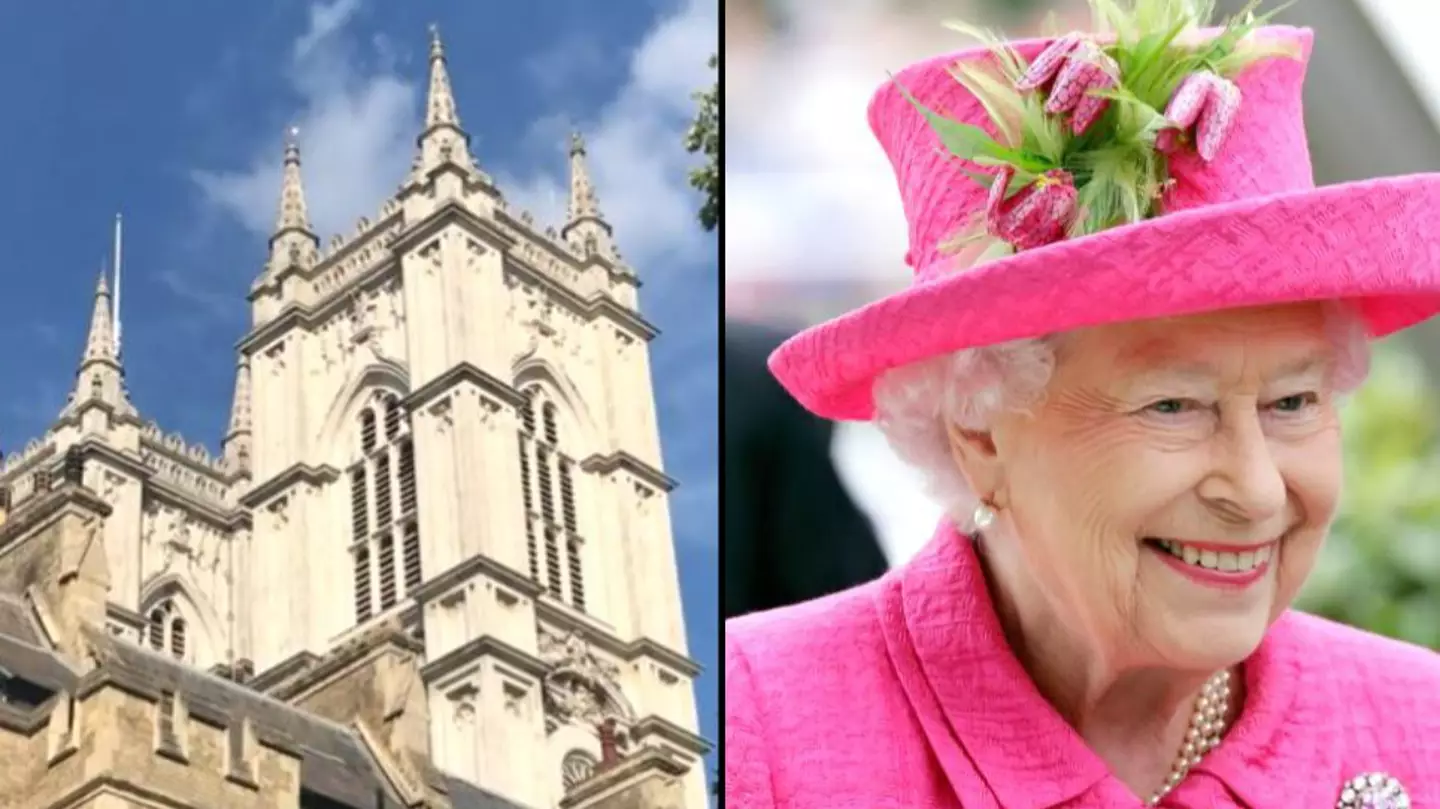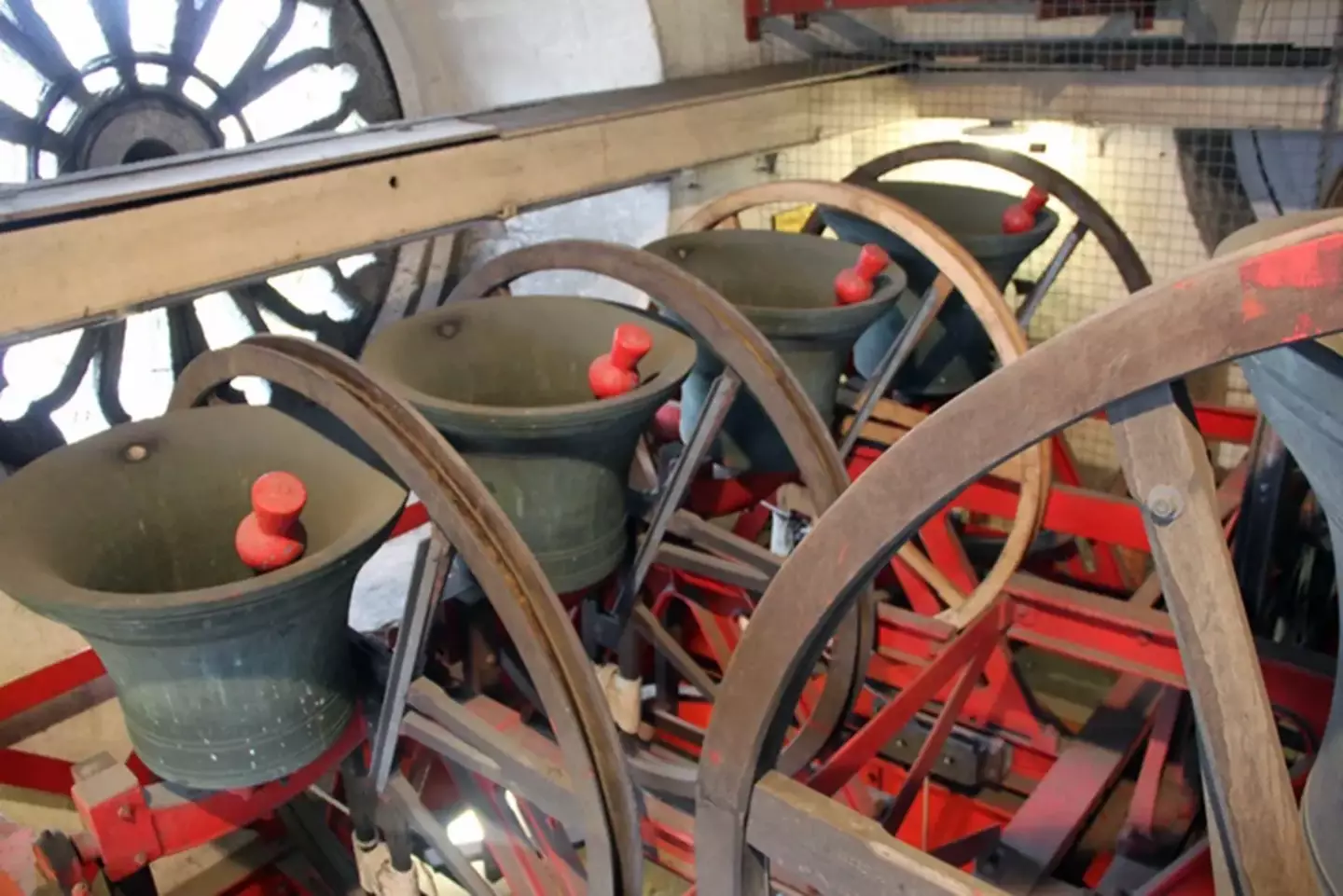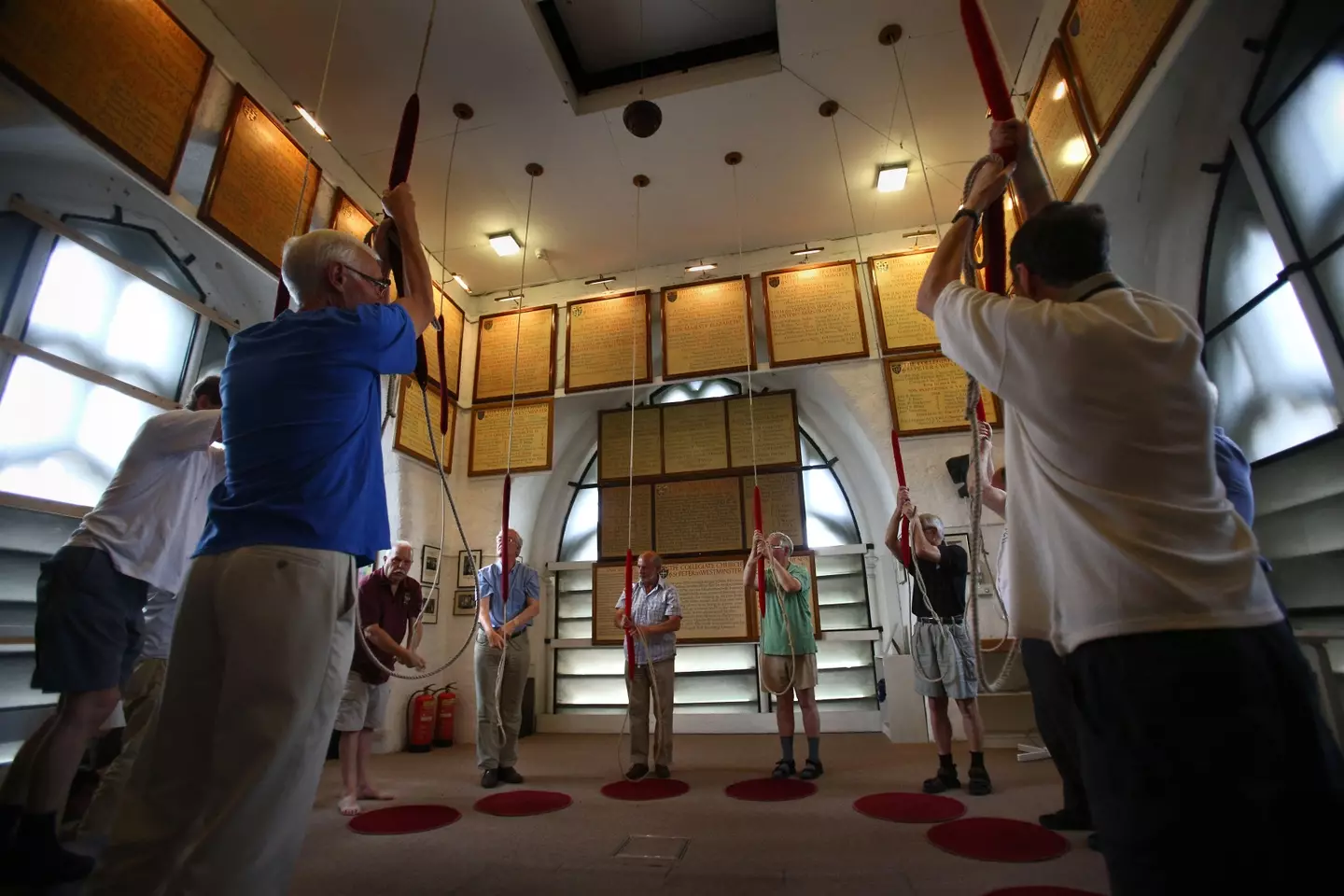
The bells of Westminster Abbey rung with a sound not heard for the better part of a century to mark the arrival of the Queen's coffin.
The coffin bearing the body of the late Queen Elizabeth II has made the final journey through the streets of London, witnessed by thousands of mourners, to Westminster Hall.
Pulled on a gun carriage through the streets of the capital before being carried by eight pallbearers, the Queen's coffin has now been placed in Westminster Hall until her funeral.
Advert
Following behind the coffin were members of the Royal Family,
The Queen's body will now lie in state until her funeral on 19 September which will be attended by leaders and dignitaries from across the world.

Ringing the bells completely muffled is a traditional mark of respect done only on the death of the monarch.
That means it has not been done for more than 70 years, the muffled bells last being sounded to mark the passing of the Queen's father King George VI in 1952.
The only other reigning monarch to die within the last 100 years was his father George V, who passed away in 1936, meaning over the past century it has been a sparsely used tradition.
For the traditional sound to be rung Westminster Abbey uses mufflers, leather pads which are attached to the bell's clappers to produce a softer sound considered to be more solemn.
There are occasions where the bells are half-muffled, meaning the leather cover is fitted to only one side of the bell, which include All-Souls Day and Remembrance Day.

The amount of people who wish to walk into Westminster Hall and see the Queen's coffin numbers in the thousands, with plans for a queue of up to 10 miles long.
More than 1,000 volunteers have been tasked with attending to the needs of the queue, and official guidance warns that people could have to stay out overnight.
Mourners who wish to see the Queen's coffin have been warned that they need to consider the late nights and waiting times, especially if they are planning on bringing young children with them.
Well wishers have been warned that entry to the queue could be closed depending on how long it gets and how much time is remaining to avoid people standing in line when there's no chance of them making it through.
People in the queue will be issued with wristbands, meaning they will be able to regain their place in the line if they step out to go to the toilet or get food.
When the Queen's body lay in state in Edinburgh, one woman went to see her seven times in a row and collected a new wristband each time.
Topics: UK News, News, The Queen, Royal Family